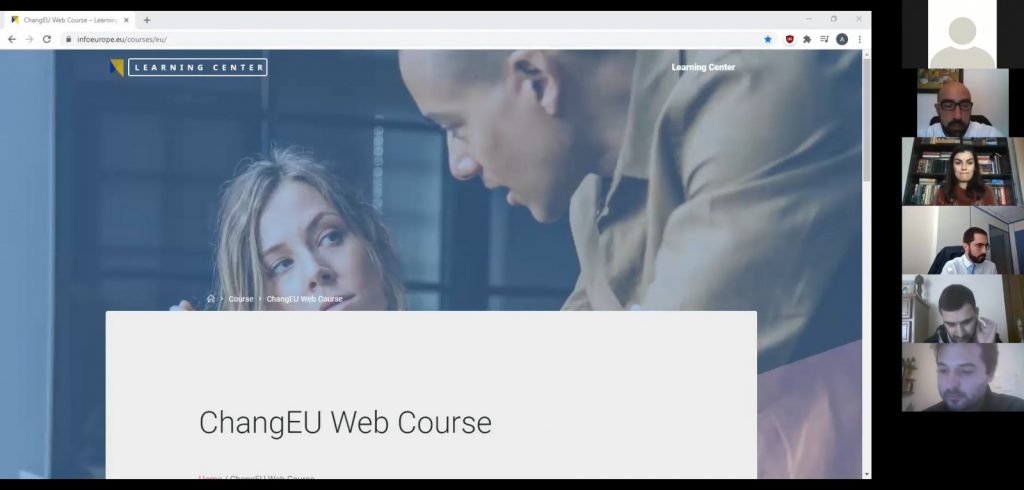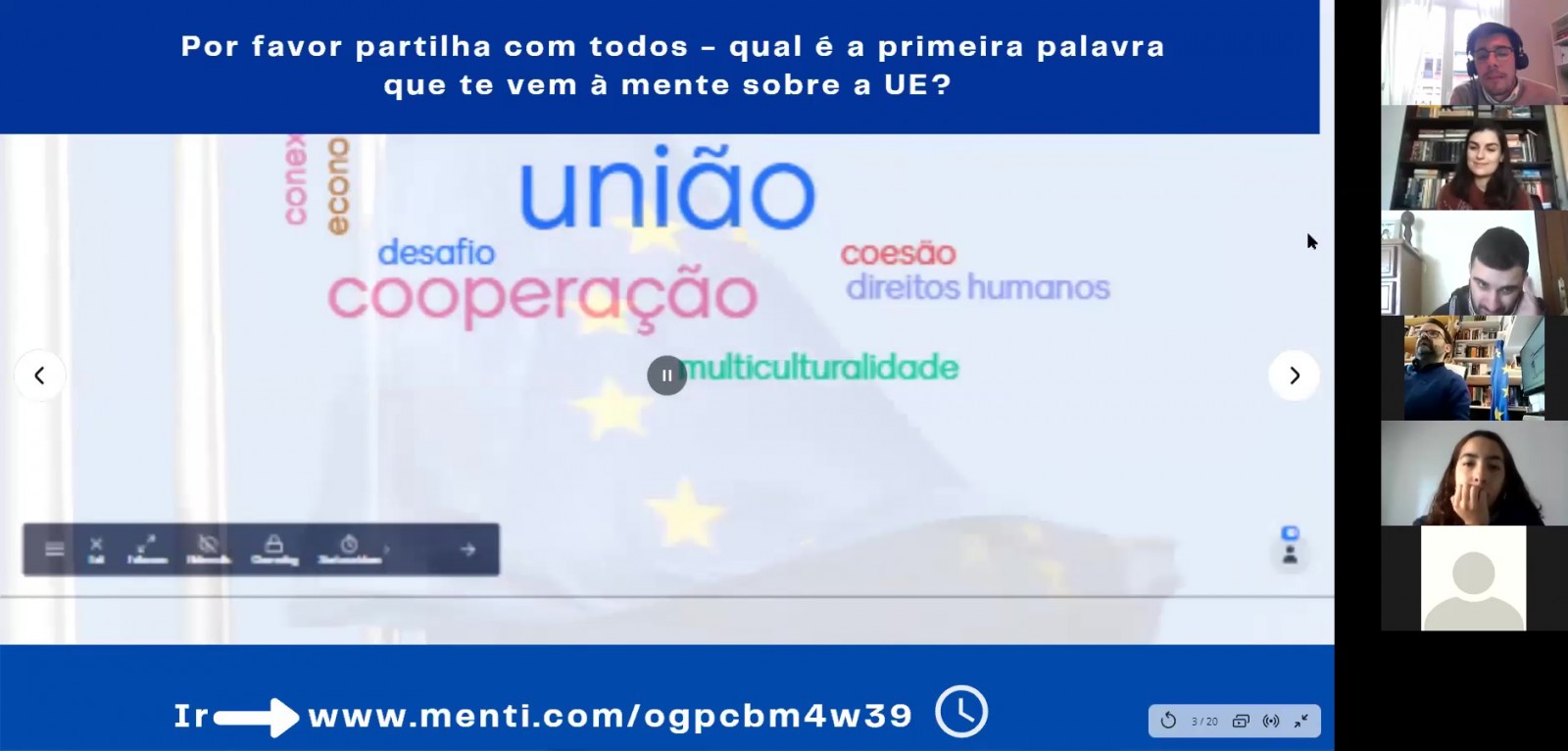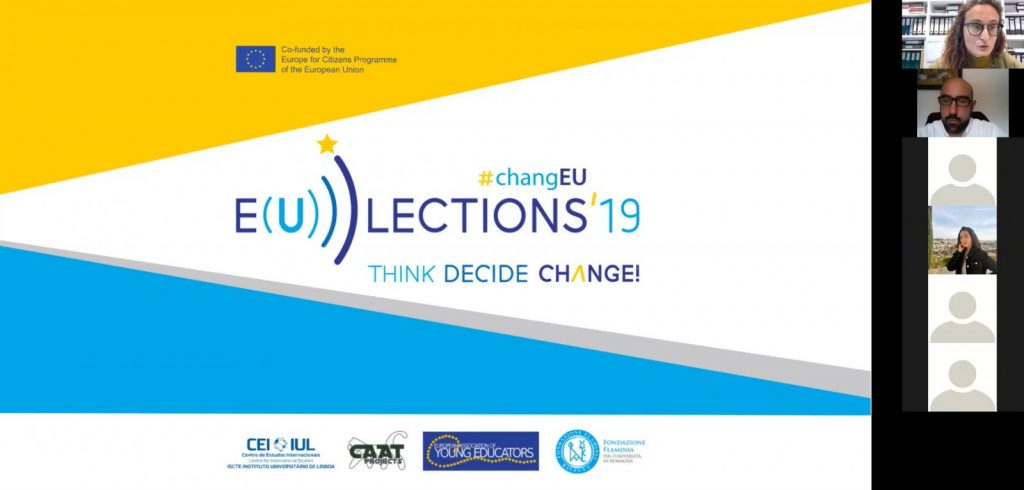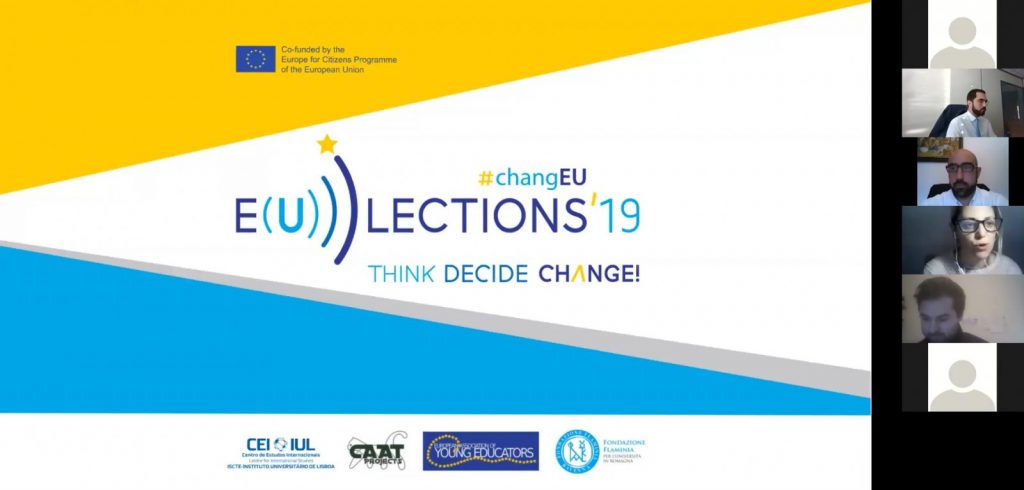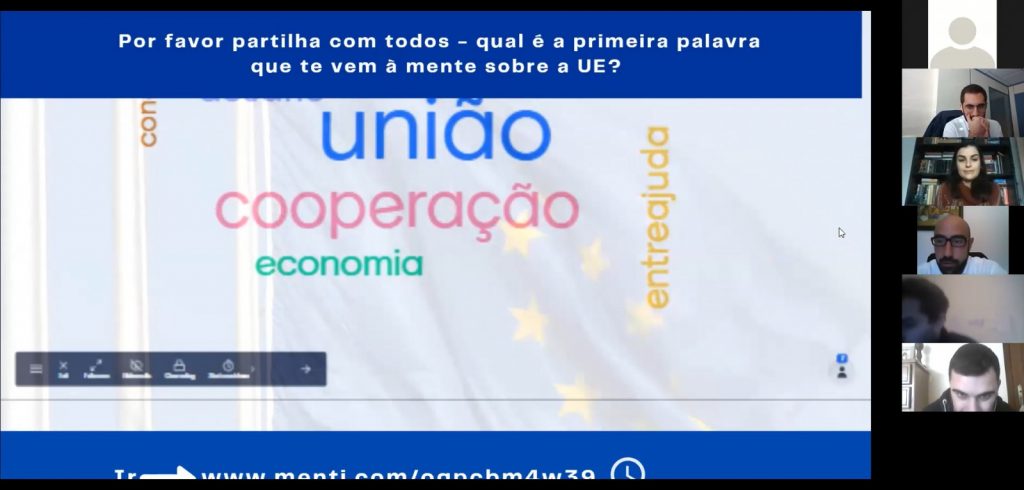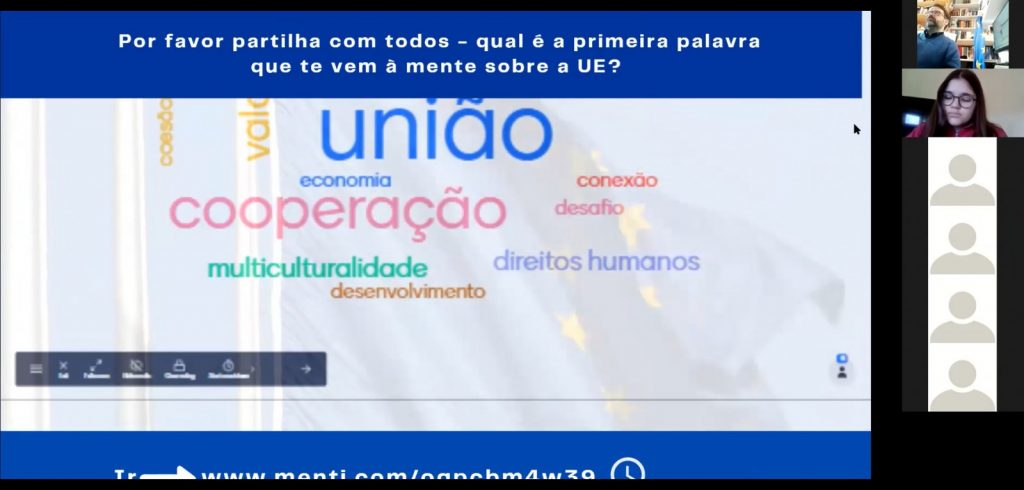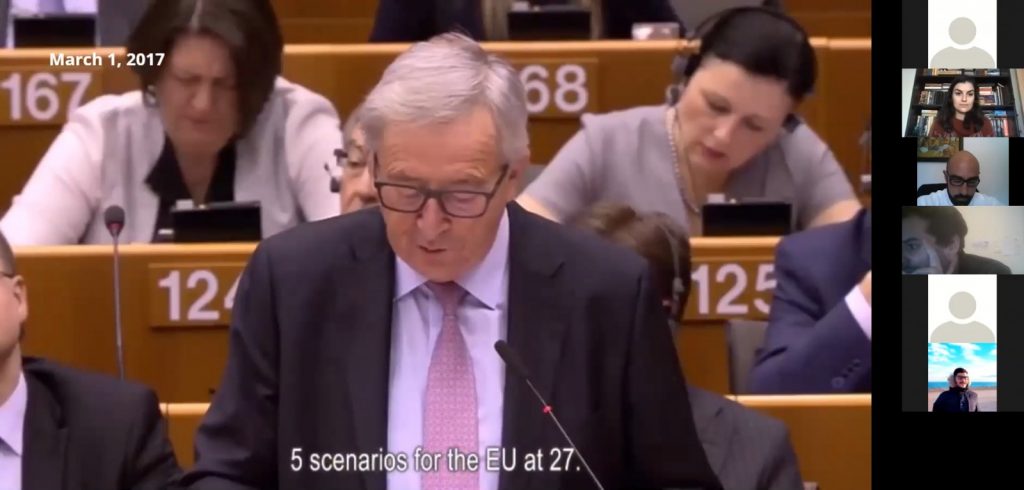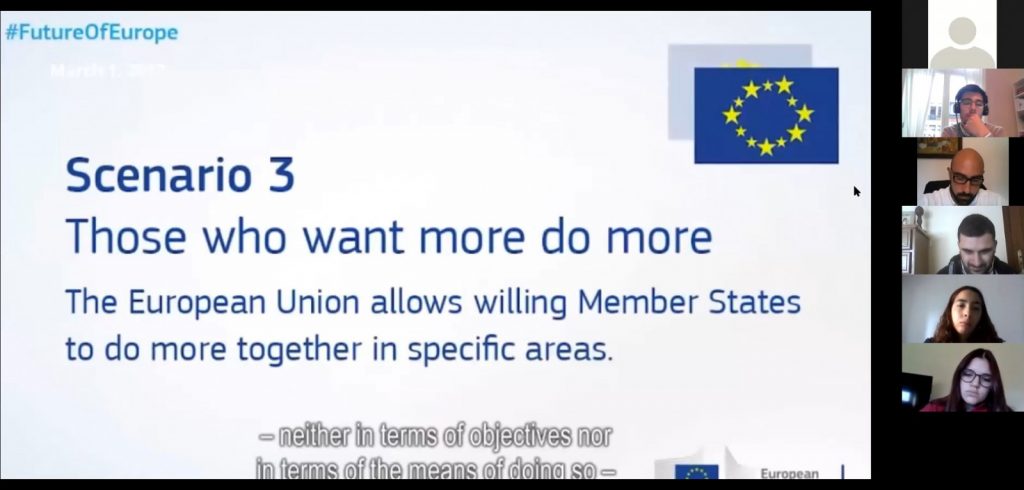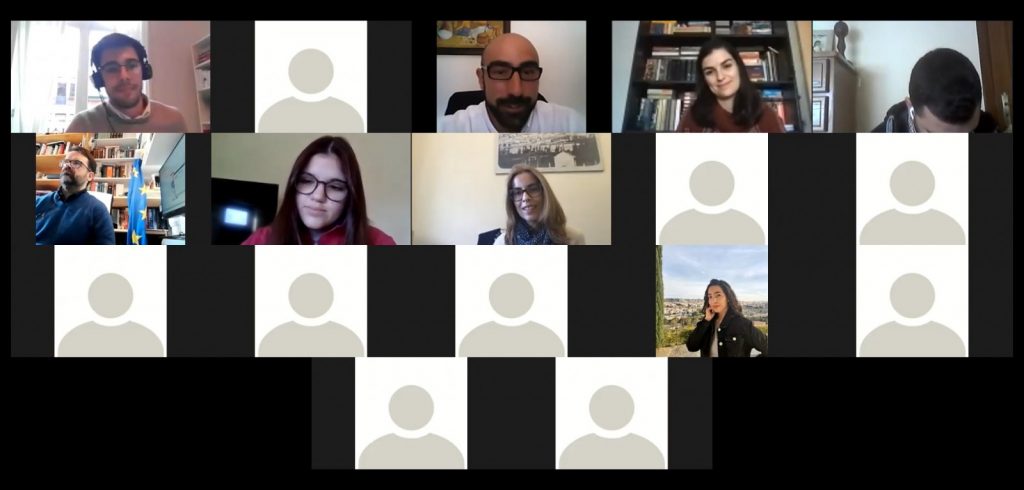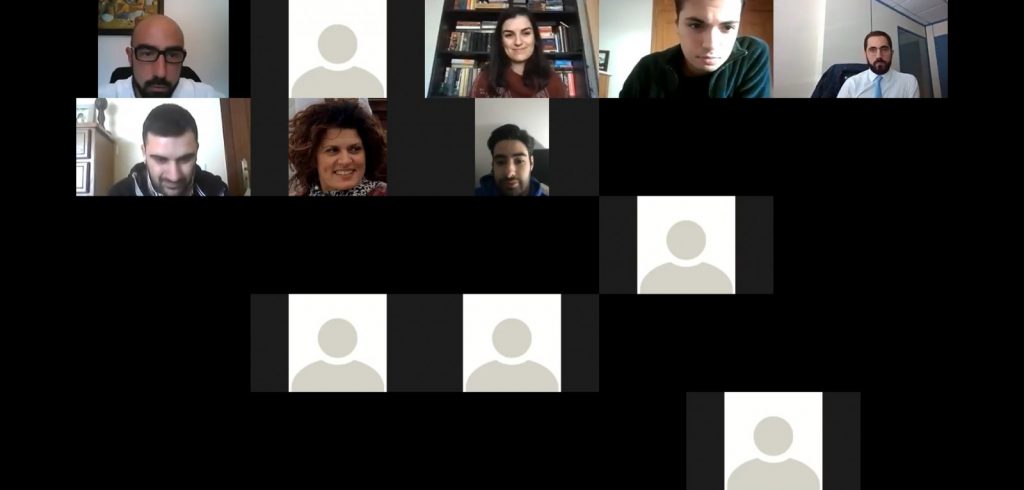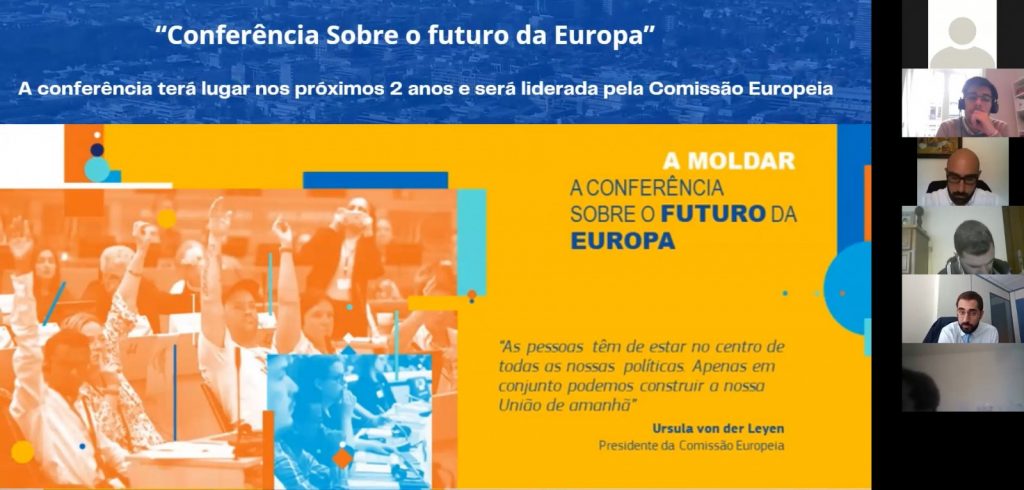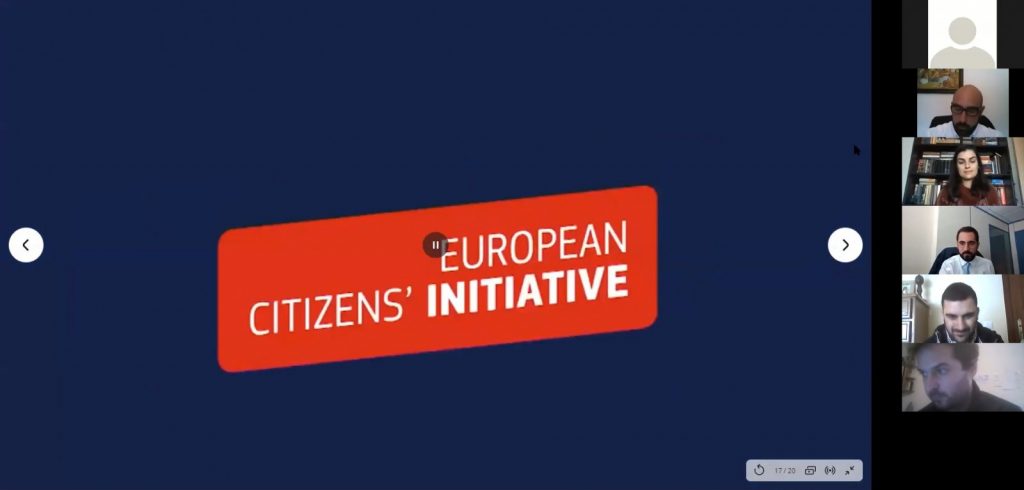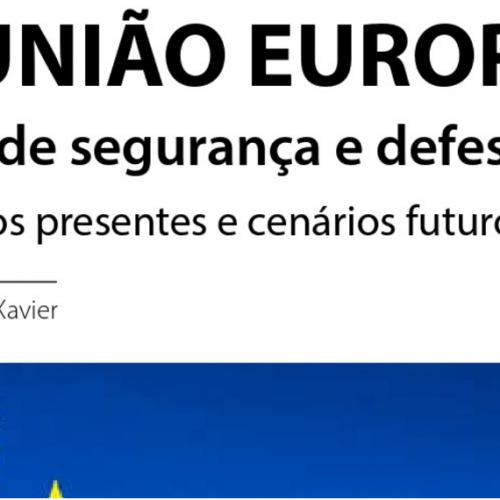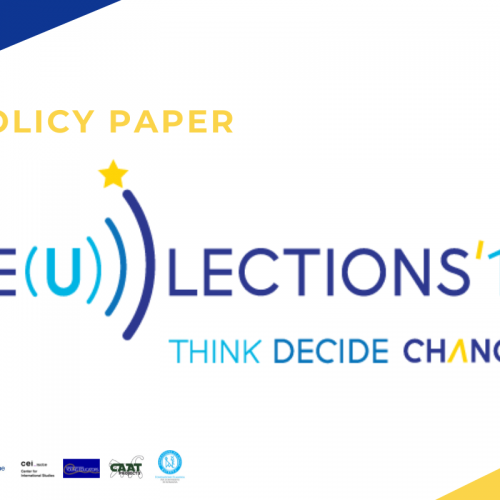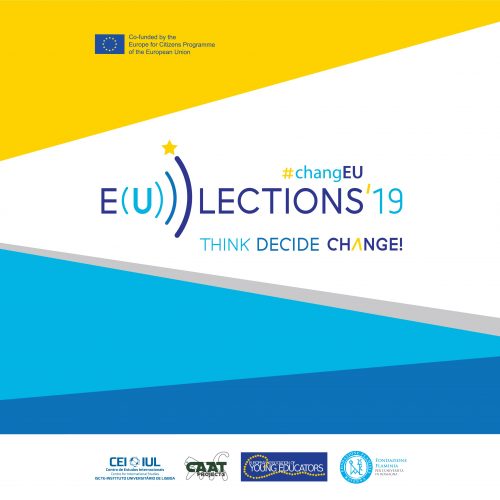Students from Universidade de Coimbra joined the EULECTIONS’19 online roadshow to debate the future of Europe on December 15, 2020. This event included two workshops with two groups of participants from the European Affairs course with a total of 28 citizens, including 23 participants from the city of Coimbra, 5 participants from the city of Lisbon.
The workshop started with a brief presentation of the EULECTIONS’19 project by the partners and an overview of the goals and objectives of the session. Following the introduction, we’ve asked the participants to share the first word they associate with the European Union.
The word cloud was formed by words like “union”, “cooperation”, “economy”, “mutual aid”, “multicultural”, “human rights”, “development”, “challenge”, “connection”, reflecting mainly, favourable perspectives about the EU. Following this initial brainstorm, we’ve challenged the students to test their knowledge about the history of the European project through a quiz. These first activities aimed to set the floor for the debate about the current state of the EU and its future.
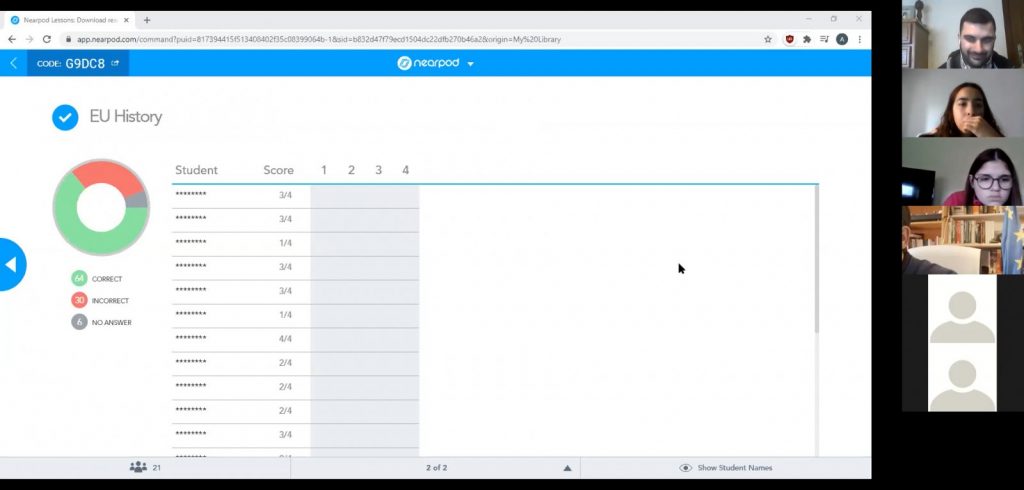
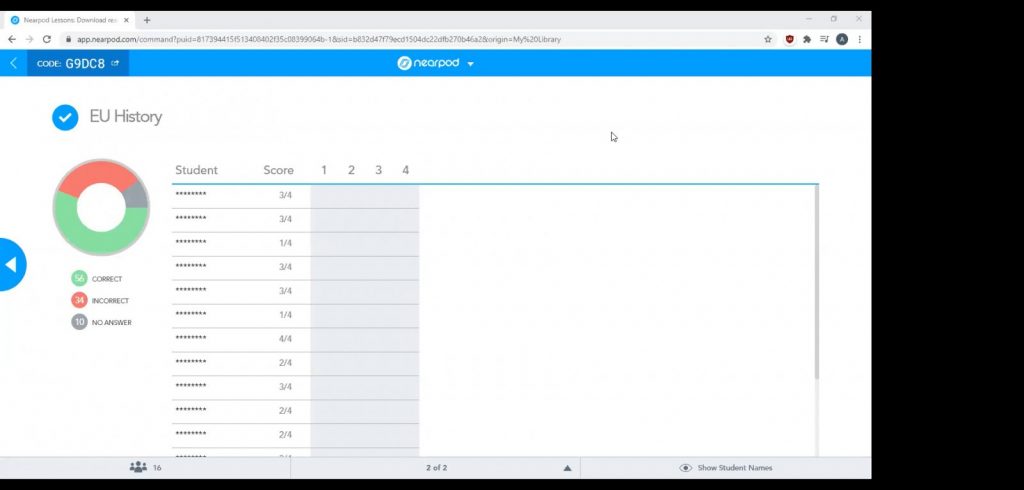
After the quiz results were shared with the participants and commented by students and facilitators, we’ve started the collective reflection about the future of Europe with a short video and a presentation about the “White Paper on the Future of Europe”. In the two workshop sessions, the participants were divided in smaller groups with the task of choosing and debating one of the scenarios and sharing their perspectives. Each group had a facilitator to mediate the discussion.
The conclusions of the group work were presented by the group’s representatives and a debated followed with some comments from the facilitators. The students debated the 5 scenarios, with different perspectives emerging about how to overcome the challenges facing the European project.
For some students it’s important to focus on key areas to improve EU’s performance and therefore “do less more efficiently”, as for others the Union must strengthen its policies and institutions to deliver its current agenda. A third group of opinions was focused on a more ambitious EU that is able to do “much more together” namely, face climate change and health. This discussion was wrapped up with participants choosing, individually, the scenario they would prefer for the future of the European Union, a “citizens’ scenario“.
The group reflection was then oriented towards the relations between European institutions and European citizens namely, what should the EU do to respond to citizens’ needs? what can citizens do to improve the EU? how can the relationship between the EU and its citizens improve? The students’ responses
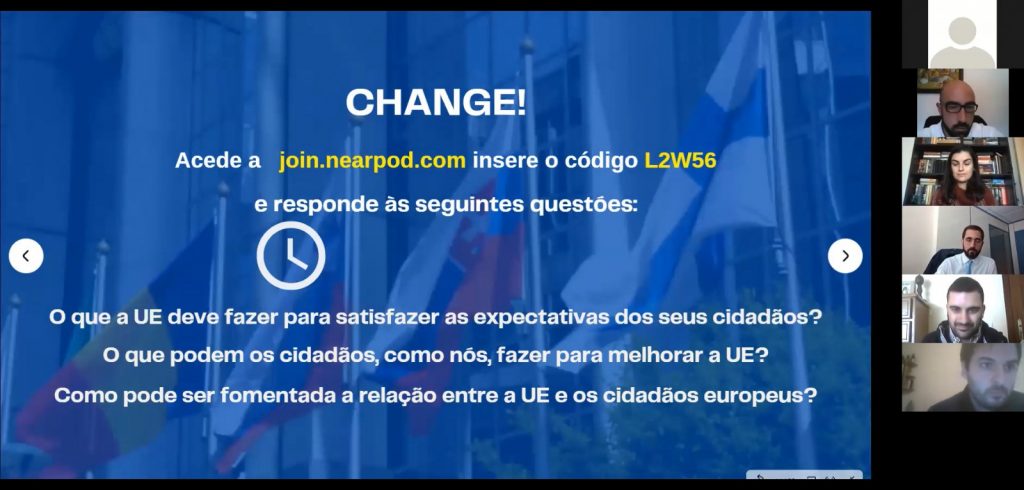
The students recommended the creation of better communication and participation instruments as well as more debate opportunities about European issues, underscoring the role of citizens in engaging with the institutions through the channels already available. They emphasized the need to continue to involve schools and universities in the discussions and promote a real understanding of what the EU really means.
In order to promote an informed and active citizenship, we’ve challenged participants to take part in the ChangEU Webcourse and share this easily accessible resource with others. We’ve also shared the current initiatives that allow citizens to shape the EU’s policies and the debate about its future namely the European Citizens’ Initiate and the Conference on the Future of Europe.
